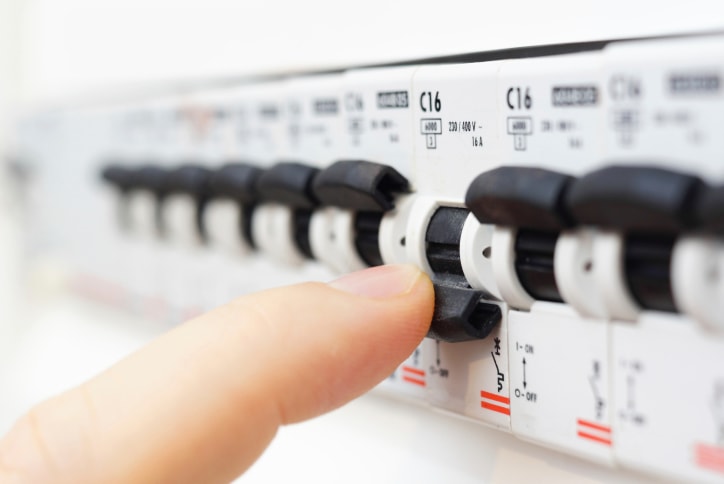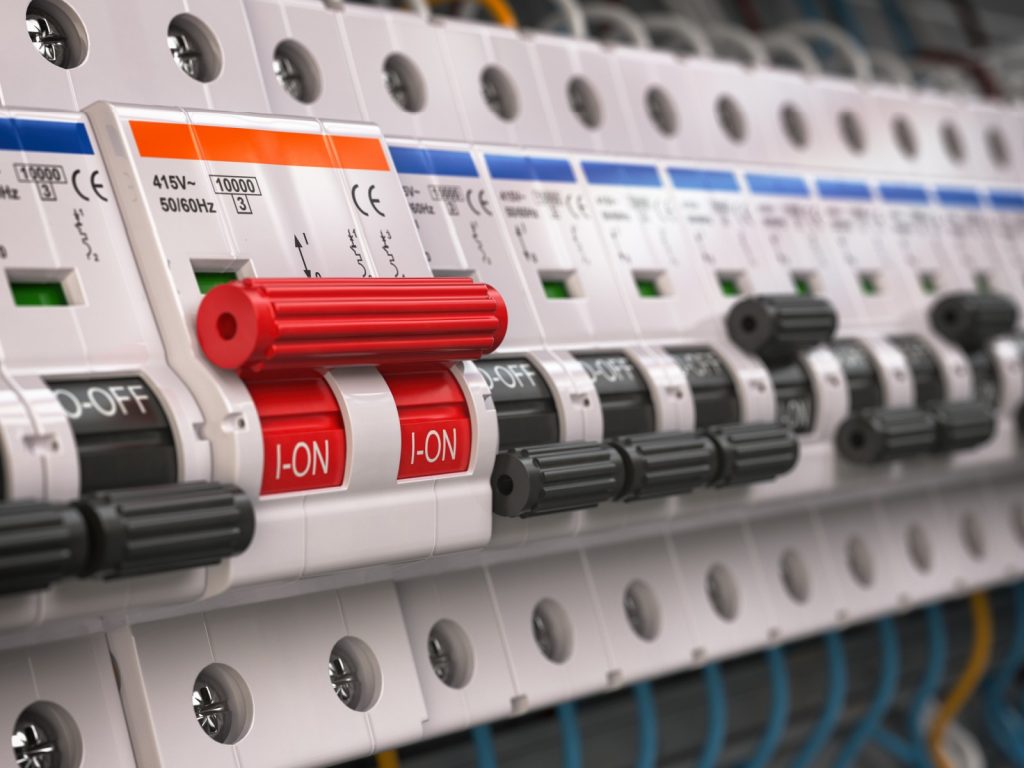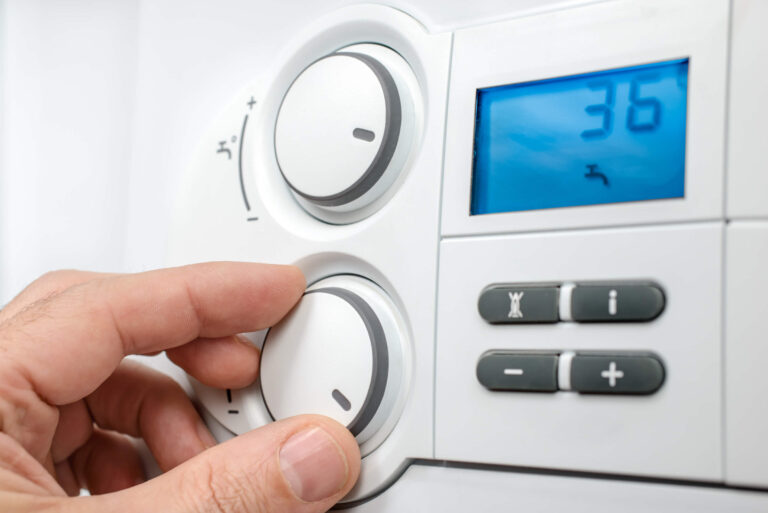Discovering that your boiler is repeatedly tripping the fuse box can be concerning and inconvenient. Several underlying reasons could be causing some are Electrical overload, faulty heating elements, short circuits, ground faults, water leaks, and thermostat problems are some potential culprits. Additionally, inadequate wiring, overheating, corroded connections, circuit issues, and age-related wear
Moreover, It is essential to determine the root problem as soon as possible. Here, You will discover the reason and solution to this problem here.
What are the reasons that could potentially cause your boiler to trip your fuse box?
Electrical Overload: The substantial electrical power needed for heating water or generating steam can result in an overloaded electrical circuit. When coupled with other devices sharing the same circuit, this can potentially trigger the circuit to disconnect, as a safety precaution.
Faulty Electrical Components: The presence of damaged or malfunctioning electrical components within the system, including heating elements, control boards, or wiring, can give rise to short circuits or excessive current draw. These issues may subsequently lead to the circuit disconnecting.
Water Leak: If there are water leaks, the electrical systems may become wet, possibly resulting in short circuits and, as a result, circuit disconnection.High Pressure: In cases where the boiler’s pressure surpasses recommended levels, the pressure relief valve may open, generating an electrical signal to the control board. This, in turn, might lead to the circuit disconnecting.
Grounding Issues: Inadequate grounding of system parts can cause electrical abnormalities, perhaps ending in circuit loss.
Thermostat Problems: Problems with thermostats, which include broken units or incorrect calibration, are susceptible to unpredictable boiler performance and high power use. These events may ultimately bring about the circuit being disconnected.
Accumulated Dust and Debris: The buildup of dust and debris within components can contribute to overheating, significantly increasing the likelihood of the circuit disconnecting.
Age and Wear: Electrically powered parts may deteriorate or wear out with time, which produces a higher resistance and probable link failures that might destroy the entire system.
Electrical Short Circuits: Direct contact between electrical wires may generate shorts in the wiring, and this skips the normal circuit path and prompt an excessive amount of electricity to flow. This could end up resulting in the wiring cutting out.
Safety Precautions:

- Turn off the power supply before inspecting the boiler or electrical components.
- If unfamiliar with electrical systems, seek help from a qualified HVAC technician or electrician.
- Wear safety gear like gloves and safety glasses when working around the boiler.
- Watch out for gas leaks if the boiler uses gas; evacuate the area if you smell gas.
- Check for water leaks around the boiler and avoid mixing water with electricity.
- Ensure proper ventilation to prevent the buildup of harmful gases.
- Follow the manufacturer’s instructions for maintenance and troubleshooting.
- Turn off the water supply if the boiler needs to be drained or has a water leak.
- Use the right tools for the job to minimize accidents.
- Keep children and pets away from the boiler area to ensure their safety.
Check the Circuit Breaker/Fuse
Here are the steps to check the circuit breaker/fuse:
- Locate the Fuse Box or Circuit Breaker Panel.
- Identify the Boiler Circuit.
- Check for a Tripped Breaker (switched to the “off” position) or Blown Fuse (broken metal strip).
- Reset the Circuit Breaker (flip it back to the “on” position) or Replace the Fuse.
- Monitor for Recurring Trips – If the fuse trips again immediately or frequently, there might be an underlying issue that needs further investigation.
Evaluate Electrical Load:
- identify all appliances on the circuit with the boiler.
- Calculate the total power rating (watts) of connected devices.
- Check the circuit’s amperage rating (found on the breaker/fuse).
- Ensure the total load doesn’t exceed the circuit’s capacity.
- Consider the simultaneous operation of high-power appliances.
- Redistribute loads to other circuits if necessary.
- Monitor for fuse tripping to detect overload issues.
Review Recent Maintenance
- Gather recent maintenance records.
- Check for recent repairs or replacements.
- Verify workmanship and adherence to guidelines.
- Inspect for loose connections or wires.
- Note the timing between maintenance and the fuse tripping issue.
- Consider if maintenance might be related to the problem.
- Ensure all necessary boiler issues are addressed.
- Consult with the maintenance provider if needed.
Solution of why is my boiler tripping the fuse box

Check Electrical Load: Ensure the total load on the circuit doesn’t exceed its capacity.
Inspect Components: Check the heating element and wiring for damage or loose connections
Fix Water Leaks: Address any water leaks to prevent electrical issues.
Test Thermostat: Verify proper functioning and calibration of the thermostat.
Check Grounding: Ensure the boiler is properly grounded.
Review Recent Maintenance: Consider if recent maintenance could be related to the problem.
FAQ
How do I stop my fuse box from tripping?
Reset your fuse switch
What are the signs of poor combustion in a boiler?
Usually, fuel burns with a blue flame. A yellow flame occurs due to incomplete combustion of the fuel.
Which is the major loss in boilers?
Dry Flue gas loss
What temperature should my boiler read?
at least 65°C
Conclusion:
Last but not least, there are many other problems that could be the reason of your boiler tripping the fuse box frequently. A variety of causes, notably electrical overload, broken components, water leaks, and poor wiring, can cause this occurrence.
On the other hand, resolving this issue and preserving the dependable performance of your heating system requires routine maintenance, professional inspections, and fast resolution of the underlying issues.

